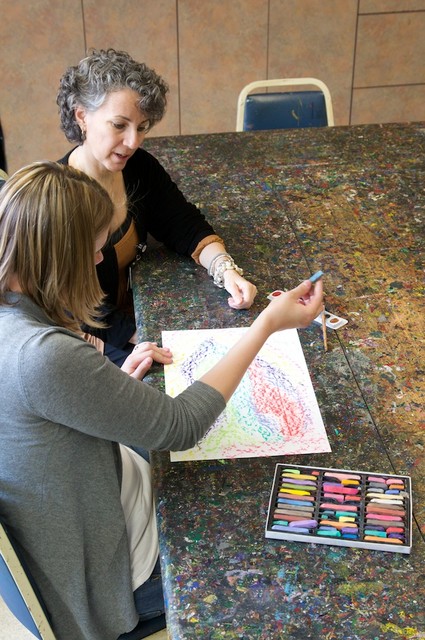Reflections employs a multimodal treatment approach for eating disorders, with a major focus on group and family therapy, cognitive behavioral therapy, expressive therapy and individual therapies. The multidisciplinary treatment team includes board certified psychiatrists, psychologists, internal medicine physicians, licensed therapists, registered dietitians, case managers, and nursing support.
Psychiatric Treatment
All program participants are assigned a physician upon admittance to the program. Your physician will meet with you several times a week. He or she may speak to you about how medication may help you in your recovery process.
Medical Care (Internal Medicine)
Reflections has a full-time internist. Upon entering our Center, you will have a complete physical exam. Many patients with eating disorders have a variety of medical needs. Our internist will ensure that appropriate referrals are made if a specialist is required.
Individual Therapy
Reflections has a dedicated therapist. Patients meet with the therapist for individual sessions at least twice per week. This is in addition to the daily group therapy that our patients participate in. Each patient works with a therapist to create an individual treatment plan.
Group Therapy
Group therapy has been shown to be an essential piece of the treatment for individuals with eating disorders. The majority of the day will be spent participating in a variety of groups geared towards understanding your eating disorder. Our groups are conducted using Cognitive Behavioral Therapy (CBT) and Dialectical Behavioral Therapy (DBT) methods.
Cognitive Behavioral Therapy
Clinical research indicates that cognitive behavioral therapy is one of the most effective treatment approaches for eating disorders. This approach is based on the theory that each person's emotions, thoughts and behaviors are all connected.
We work with patients to change their thoughts of themselves and food, which has a direct impact on their emotions and disordered eating behaviors.
Exposure Therapy
At Reflections, we understand that practicing the skills learned in treatment is vital to long term recovery success. Participants in our Partial Hospitalization Program have the opportunity to participate in a variety of activities that afford them exposure to "real world" experiences. With the support of members of our team, including therapists and Registered Dietitians, patients go out to restaurants and practice grocery shopping, Our unique clothing shopping exposure experience allows patients to tackle this often difficult task in a supportive peer environment.
Nutritional Support
Nutrition group includes education on various nutrients and why the body needs them, challenging negative thoughts about food, education about meal planning at home, and discussions of nutrition-related challenges and possible solutions.

Expressive Therapist, Jody, helps a patient put her emotion into a piece of art.
Family Therapy
Family therapy is an important piece of the Reflections program. Through family therapy, we are able to teach family members about the recovery process and the causes of eating disorders. This makes for a much more understanding and supportive home environment.
Our family therapists work with patients and their families to improve communication, and change behavior patterns in order to nurture a supportive home environment. Family therapy is particularly important for the adolescents at Reflections.
Expressive Therapy
Expressive Therapy is the therapeutic use of the arts (including dance/movement, art, poetry, creative writing, drama, and play), within a professional relationship, in order to create awareness of self and others, cope with symptoms and stress, and enhance cognitive awareness and abilities.
Expressive therapy allows our patients to express feelings non-verbally before they can put them into words. It is particularly useful in addressing the distorted body images associated with eating disorders.